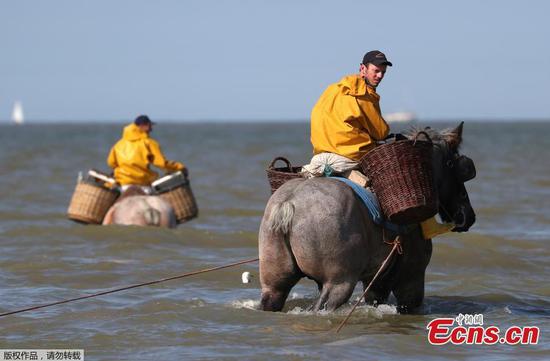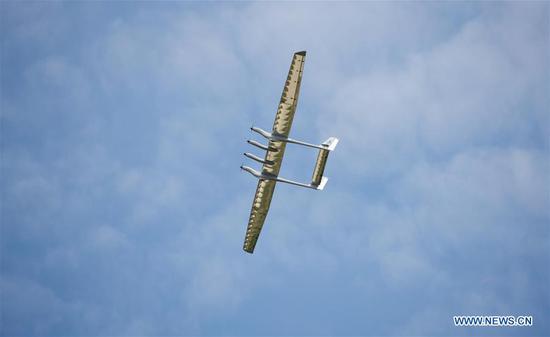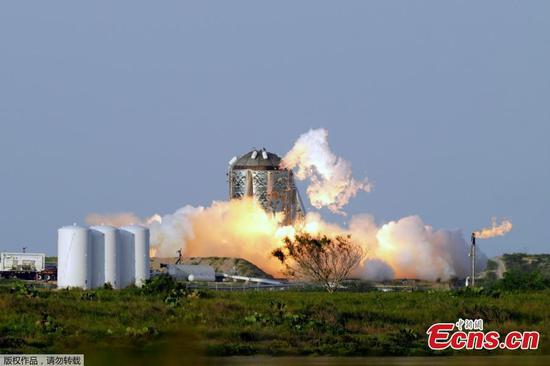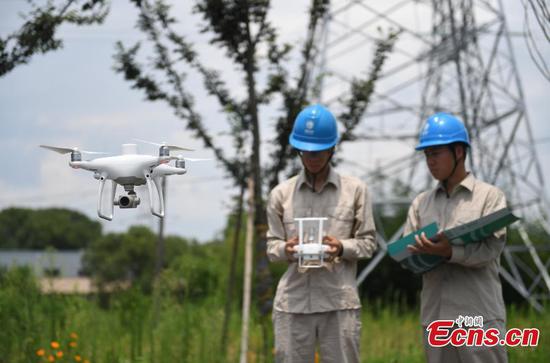Pyongyang delivers a 'solemn warning' over U.S.-ROK military drills this month
The Democratic People's Republic of Korea fired two short-range ballistic missiles off its east coast on Wednesday, its second such test in less than a week, the Republic of Korea's military said.
Observers said the firing could be Pyongyang's latest protest against a planned joint military drill between the ROK and the United States scheduled for later this month.
According to ROK's Joint Chiefs of Staff, both missiles the DPRK launched in the morning are estimated to have flown about 250 kilometers at an approximate altitude of 30 km, adding that the ROK and U.S. militaries are analyzing the details.
The launches came six days after Pyongyang fired two short-range ballistic missiles into its East Sea. Those missiles flew about 600 km at an altitude of around 50 km and were identified as "KN-23", or the DPRK's version of Russia's Iskander ballistic missile, the ROK's Yonhap News Agency reported.
"Successive missile launches by North Korea (the DPRK) are not conducive to efforts to reduce tensions on the Korean Peninsula and we call for a halt to these acts," a military official from the ROK said in a statement.
In a Wednesday news conference, Chinese Foreign Ministry spokeswoman Hua Chunying said China is aware of the launch and the reactions by different parties.
It is a crucial stage now for the process of political settlement of the Korean Peninsula issue, Hua said, calling for all parties involved to cherish "the eased situation" and actively invest efforts to achieve the peninsula's denuclearization and lasting peace in the region.
KCNA, the DPRK's state media, said last week's tests were supervised by their top leader Kim Jong-un and were designed to deliver a "solemn warning" to Seoul over its purchase of high-tech U.S.-made fighter jets and planned military drills scheduled in August, which Pyongyang calls "an invasion rehearsal".
The series of launches came as Washington has sought to restart working-level talks on denuclearizing the Korean Peninsula after Kim and U.S. President Donald Trump held an impromptu meeting at the inter-Korean border village of Panmunjom on June.
Li Chengri, a researcher at the Chinese Academy of Social Sciences, said the missile tests are diplomatic tactics rather than a real threat to the U.S. and the DPRK's neighboring countries.
"The U.S.-ROK joint military exercises have long been a point of discontent for the DPRK. In fact, the short-range missiles Pyongyang tested recently are mainly aimed at putting pressure on the ROK and warning it of the dangers of participating in the ROK-U.S. military exercises," Li said.
Although Washington and Seoul insist that the drills are defensive in nature, Li said, the idea of two armies conducting live-fire exercises near an armistice border is always going to be viewed as provocative and unsettling, not least when U.S.-ROK capabilities now far exceed the DPRK's, he said.
"As a result, Pyongyang retaliation is conducted under the logic of 'if Seoul and Washington maintain conducting military exercises and trading arms, Pyongyang can also enhance our capabilities and test more weapons'," Li added.
Despite the missile launches, the U.S. has remained upbeat about the prospects for talks with the DPRK, with Trump dismissing last week's missiles as "smaller ones" that many countries test.
Trump also insisted that he has a good relationship with Kim.
"My relationship with Kim Jongun is a very good one, as I'm sure you've seen," he told reporters on Tuesday at the White House. "We'll see what happens. I can't tell you what's going to happen."
The DPRK has also renewed its commitment to talks.


















































